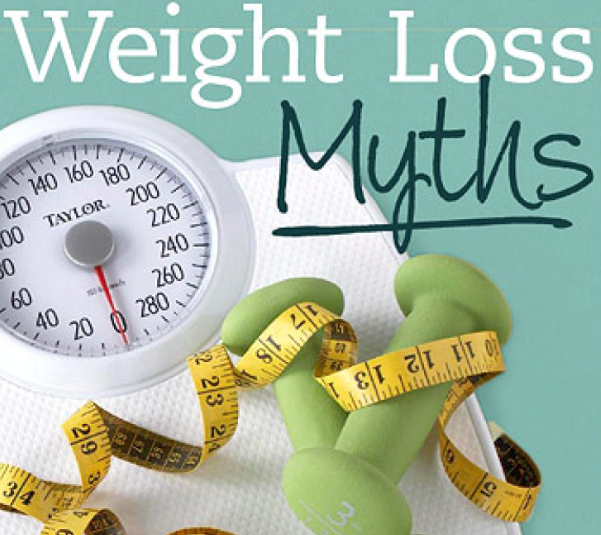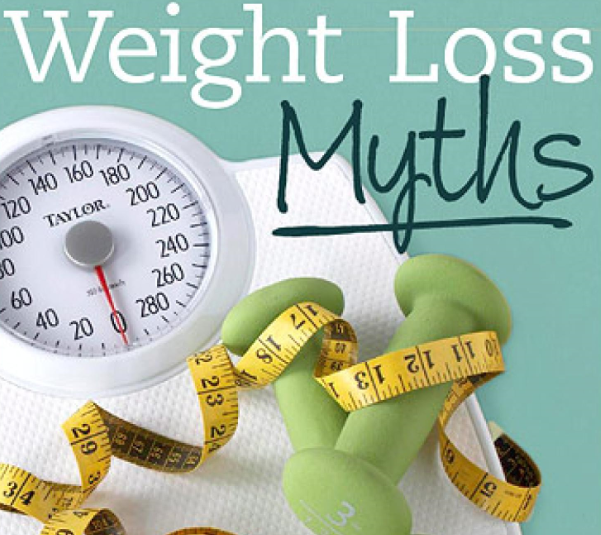 More Americans are overweight today than ever before. In fact, the ‘American Diet,’ as it has been dubbed in recent years, is loaded with fattening foods and fattening habits that have led to our nation’s highest rate of obesity. Yet losing weight tops the list of not only New Year’s resolutions, but nearly every other wish list imaginable. But what does it take to lose weight? And why is such a difficult, even elusive, prospect for so many of us? Perhaps the answer lies in the facts and myths about the prospect of losing weight itself. For instance, did you know that not all calories are equal? It’s true. When you’re planning out how many calories you plan on consuming on your new weight loss program, it’s important to know that not all calories are created equal. There are a number of other important myths to discover about losing weight, and until you learn them, you’ll likely ride that roller coaster of weight loss for a long time. Following are top health tips about the myths of losing weight that will aid you in your journey to a more healthy weight.
More Americans are overweight today than ever before. In fact, the ‘American Diet,’ as it has been dubbed in recent years, is loaded with fattening foods and fattening habits that have led to our nation’s highest rate of obesity. Yet losing weight tops the list of not only New Year’s resolutions, but nearly every other wish list imaginable. But what does it take to lose weight? And why is such a difficult, even elusive, prospect for so many of us? Perhaps the answer lies in the facts and myths about the prospect of losing weight itself. For instance, did you know that not all calories are equal? It’s true. When you’re planning out how many calories you plan on consuming on your new weight loss program, it’s important to know that not all calories are created equal. There are a number of other important myths to discover about losing weight, and until you learn them, you’ll likely ride that roller coaster of weight loss for a long time. Following are top health tips about the myths of losing weight that will aid you in your journey to a more healthy weight.
All calories are created equal
A calorie is a measure of energy, and though all calories contain the same content of energy, not all sources of calories will affect weight in the same manner. What’s important to remember here is the metabolic pathway that foods take. For instance, some calories boost metabolism while others can slow it down. If you’re trying to lose weight and you think a candy bar that’s 300 calories will equal a protein or a bowl of fruit with the same amount of calories, you couldn’t be more wrong. Fruits and proteins can help increase your metabolism and reduce your appetite, while that candy bar with all its refined sugars not only will decrease your metabolic rate; it also likely won’t reduce your hunger.
Carbs are fattening
Not so! Though many carbs are, indeed, fattening, the fact about carbohydrates is that there are good ones and there are bad ones. Yes, refined carbs such as sugars and refined grains are unhealthy and fattening. However, some foods that are high in carbohydrates are quite good for you, and they are good for your weight loss program. Though low-carb diets will assist weight loss particularly when accompanied by higher protein intake, the fact is that whole foods that contain high amounts of carbs are healthy, and they are quite beneficial in aiding weight loss.
Fast food makes you fat

Not only is this a myth; it’s downright silly. It presumes that you can’t think for yourself and that you’re incapable of choosing one food over another. Okay, perhaps many of us who are overweight have had difficulty in choosing the right foods to eat over unhealthy ones. However, the idea that fast food makes you fat totally negates the fact that today’s fast food restaurants have infinitely more healthy choices on their menus than ever. Most fast food restaurants, including the big burger joints, have salads, yogurts, fruits, and other healthy, low-fat, and low-calorie options that can facilitate your weight loss quite well. Besides, fast food is not meant to be eaten every day. Think of it this way: there was a time that fast food restaurants really did only have the burger-and-shake choices on their menus; yet Americans are fatter today than ever before. Something to think about, isn’t it?
Diet foods are healthy
To put it bluntly, this is a load of bunk. In fact, today’s so-called ‘healthy’ foods most often contain little to no nutritional value, are processed to the hilt, and will leave you just as hungry as before you ate them. Buzz words like ‘healthy’ and ‘low-fat’ are nothing more than marketing ploys intended to make you think the food you’re about to eat is healthy, when in fact it may be highly processed and packed with refined sugars and preservatives, ingredients that won’t reduce your hunger and have you reaching for more after you’ve consumed them.
If you’re searching for good advice about losing weight, perhaps the best advice is to consider weight loss as a hike rather than a sprint. Sure, you may lose some weight quickly if you engage in one of those fad diets, but the chances you’ll keep it off are slim, no pun intended. And the more fad diets you try, the more likely you are to gain more weight with each new fad. The best way to lose weight is to learn to distinguish fact from fiction, and set yourself on a course that will end in successful weight loss that will stay off and keep you at a healthy weight for the rest of your life. Consult with a nutritionist or your physician for more top health tips about the proper way to lose weight.


